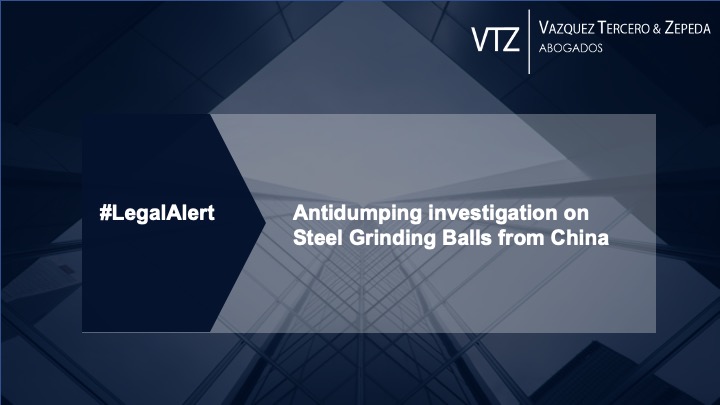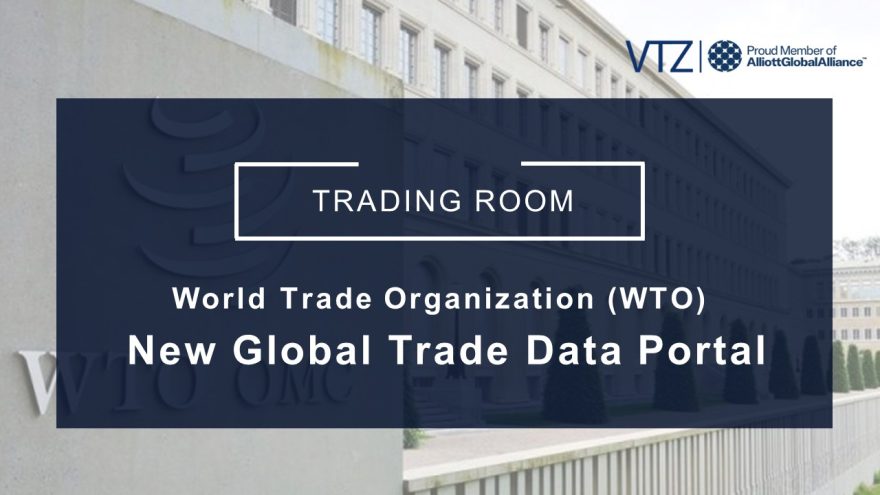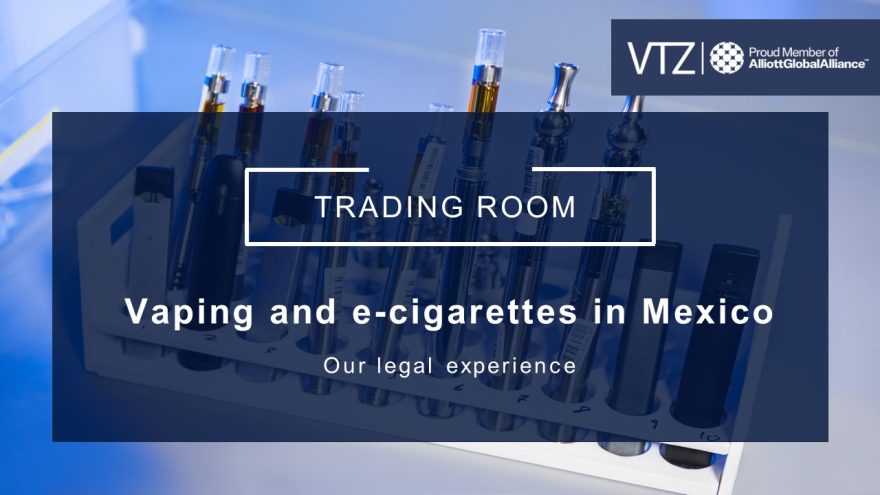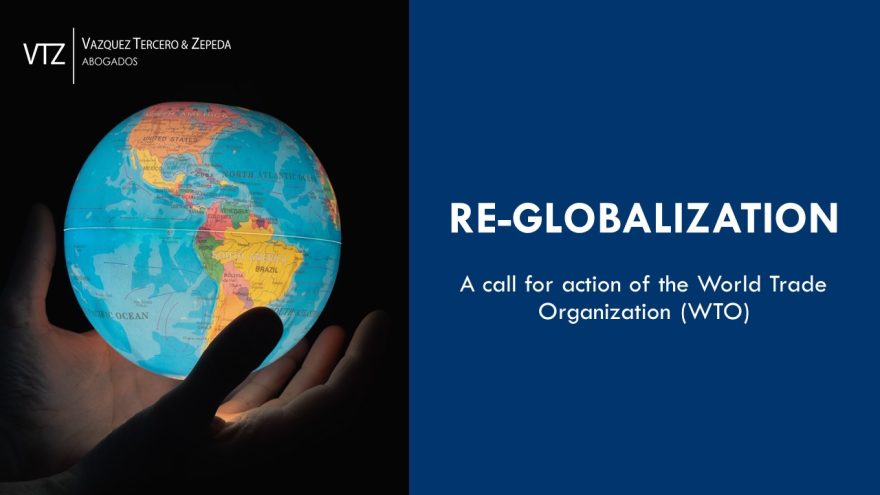Antidumping Investigation on Steel Grinding Balls from China
On September 6th, 2022, the Ministry of Economy published in the Official Gazette of the Federation, the notice of initiation of the antidumping investigation concerning steel grinding balls originating from the People’s Republic of China. This investigation was requested by the company Moly-Cop México, S.A. de C.V.
Investigated Product
Steel grinding balls, manufactured by hot forming processes, with diameters from 1 to 3.5 inches and from 4 to 6.25 inches of carbon steel, whether or not containing alloys. The commercial name of the product is grinding balls or steel balls.

The chemical composition of the product under investigation is within the following parameters: carbon (from 0.70% to 1%), manganese (from 0.60% to 1.02%), phosphorus (up to 0.035%), sulfur (up to 0. 040%), silicon (from 0.14% to 0.40%), nickel (up to 0.10%), chromium (from 0.35% to 1.05%), molybdenum (from 0.03% to 0.15%), copper (up to 60%), vanadium (from 0.005% to 0.035%), columbium (from 0.010 to 0.035%).
Final Antidumping Determination
On March 5, 2024, the Ministry of Economy published the Final Determination of the anti-dumping investigation on steel balls from China. In its determination, the Ministry concluded that the imports of this product were made under dumping conditions. Furthermore, it considered that such imports threaten to cause injury to the domestic industry. Consequently, the Ministry determined the following antidumping duties:
One of the most important aspects of this Final Determination is that the Ministry calculated a constructed normal value of the Chinese companies, instead of using the domestic prices of their sales in China.
Participation of VTZ in this investigation
Thanks to our robust and experienced team, VTZ represented the exporting companies:
* Iraeta Energy Equipment Co., Ltd. and.
* Changshu Longte Grinding Ball Co., Ltd.
VTZ also represented the importer Sociedad Comercial ME Elecmetal México, S. de R.L. de C.V. in this antidumping investigation.
VTZ work and results
During the course of this investigation, VTZ prepared information from the exporting companies and the importing company. VTZ also presented arguments on injury, constructed normal value, export price, adjustments and cost of production. Thanks to our experience in previous anti-dumping investigations, Sociedad Comercial ME Elecmetal México S. de R.L. de C.V. together with Changshu Longte Grinding Ball Co., Ltd. were considered as cooperating parties in the Final Determination. Likewise, the Ministry determined that Iraeta Energy Equipment Co., Ltd. had the lowest dumping margin in the investigation.
Finally, we note that the Ministry begins to reflect the practice of changing the reason for the investigation from injury to threat of injury.
Preliminary Antidumping Determination
On September 27th, 2023, the Ministry of Economy published the Preliminary Determination in the antidumping investigation. On a preliminary basis, the Ministry determined that the imports of steel balls from China were made under dumping conditions and threaten to cause injury to the domestic industry.
However, after an analysis of the situation of the domestic industry and the actual and potential effects of the Chinese imports, the Ministry determined not to impose any provisional antidumping duty. Therefore, the importation of steel balls from China is currently free of countervailing duties.
Petitioner
The domestic producer of steel grinding balls that requested the initiation of the antidumping investigation is Moly-Cop México, S.A. de C.V.
Mexican Tariff Item
Before December 2020, the investigated product entered through tariff items 7326.11.01, 7326.11.03 and 7326.11.99. At this moment, the investigated product enters through the tariff item 7326.11.03.
Period of Investigation (Dumping)
January 1st, 2021 to December 31st, 2021
Period of Analysis (Injury)
January 1st, 2019 to December 31st, 2021.
Need more information?
VTZ is a firm specialized in International Trade and Customs and IMMEX with a team with extensive experience in antidumping investigations, contact our members today:








